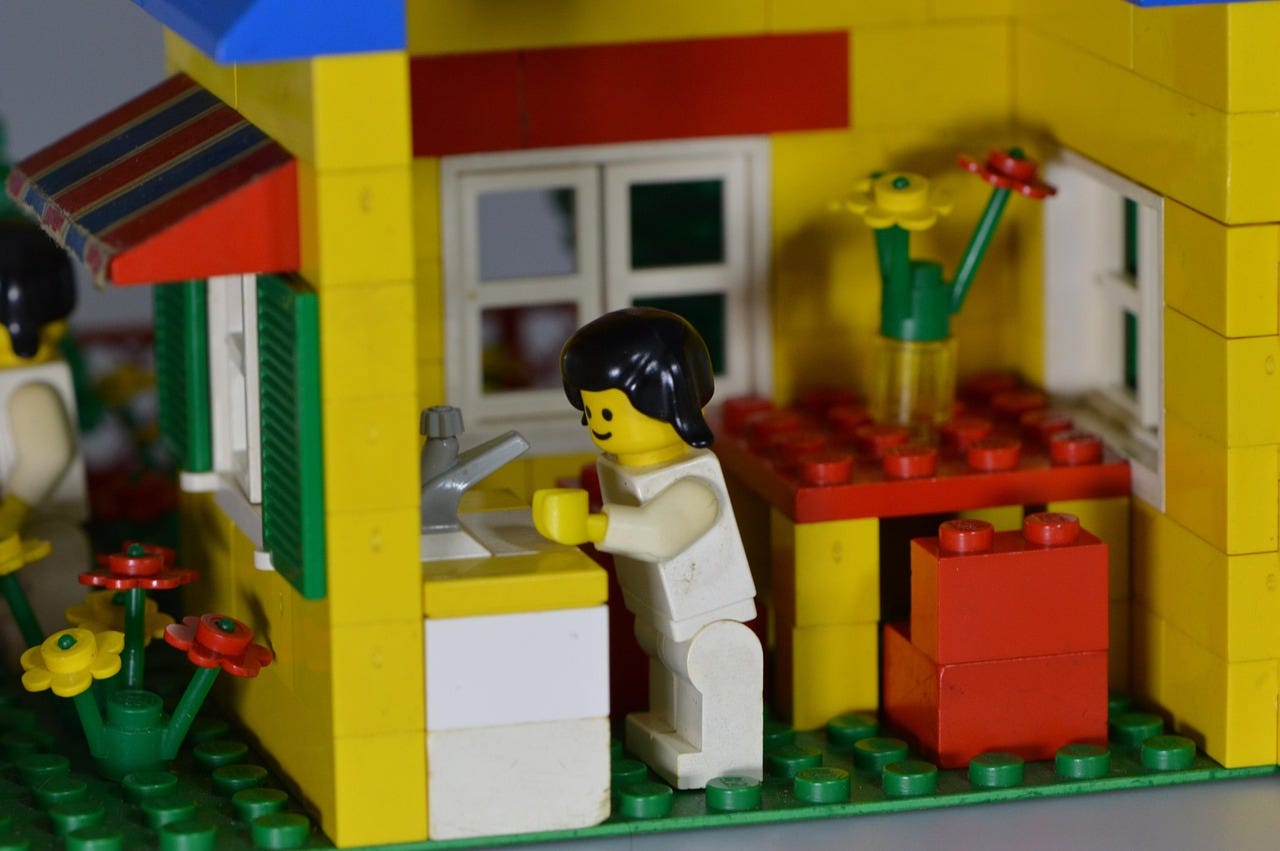If they're building they are future architects
A message to parents & careers who think careers ed is for teenagers only
I started this post when caught an item on the BBC news a while ago and was so happy to hear that the Headteacher of St Ambrose Catholic Academy in Liverpool, Tracy Moorcroft, guarantees an hour of play each school day. Saying it is a massive part of the school day. Her comment that made me smile on and off for the whole day was:-
"If they are building, we see them as future architects, if they're in the kitchen, could they be the next future chef? We try to link their play with aspirations for later in life."
You can read the article here
However, I just popped it in the drafts folder and hadn’t got around to finishing it… until the lovely J Pops aka Julie Poppleton, at Chase Academy who is working on a video for parents who fed back after a KS3 careers event that…
they considered it to be too young, for their children to be thinking about careers in Year 8.
As you know, I’m all for careers ed and exploration from a very young age, hence this blog.
So back to St Ambrose Academy, this refreshing approach isn’t just about valuing play for its developmental benefits (although that alone is reason enough). It’s about recognising that even the earliest forms of curiosity and creativity can be connected to the world of work. When children are allowed to explore, build, create, pretend, and problem-solve in their own way, they’re not just ‘playing’ They’re also testing out ideas, roles, and dreams.
Early Encounters Shape Big Ideas
Widening a child’s knowledge of the working world doesn’t mean turning the playground into a careers fair. It means offering everyday opportunities to see how their interests might link to real roles and skills out there in the real world.
A child mixing ingredients in the mud kitchen may not become a Michelin-starred chef—but they might realise they love experimenting, following plans, and producing something to share with others. That’s the spark.
The more types of work we help children become aware of, the more chances we give them to find something that makes them light up. For some, it will be fixing things, solving puzzles, or designing their own game. For others, it’s storytelling, helping friends, or leading a group game. Without being shown what these things could become in the future, children can easily fall back on a narrow list of jobs they’ve heard of on TV or from adults around them.
Play as a Window Into Possibility

The real value here is giving permission for exploration. In a world where curriculum pressures can dominate, St Ambrose Academy’s approach is a welcome reminder that play is not wasted time—it’s a way of helping children discover who they are. When adults tune into that play and ask, "What are you doing? What made you choose that? What does it remind you of?" we start conversations that connect curiosity with careers—naturally, gently, and with joy.
Children don’t need to ‘choose a job’ at five years old. But they do benefit from seeing that their interests , aptitudes and ideas matter. That the things they enjoy and are naturally good at could become something more. That the world is full of possibilities beyond what they’ve seen so far.
Let’s Widen the View
So to the parents that say careers education is just for teenagers, please read this and consider, it doesn’t have to be delivered in the form of a PowerPoint presentation or a formal meeting. It can start with a conversation at snack time, a storybook about someone’s working life, or a teacher who says, “You’re really good at that. Have you ever thought about what jobs use that skill?”
The wider we open the window on the working world, the more likely children are to find something that excites them—not because they were told to want it, but because they discovered it themselves.
And that’s the magic of play.


